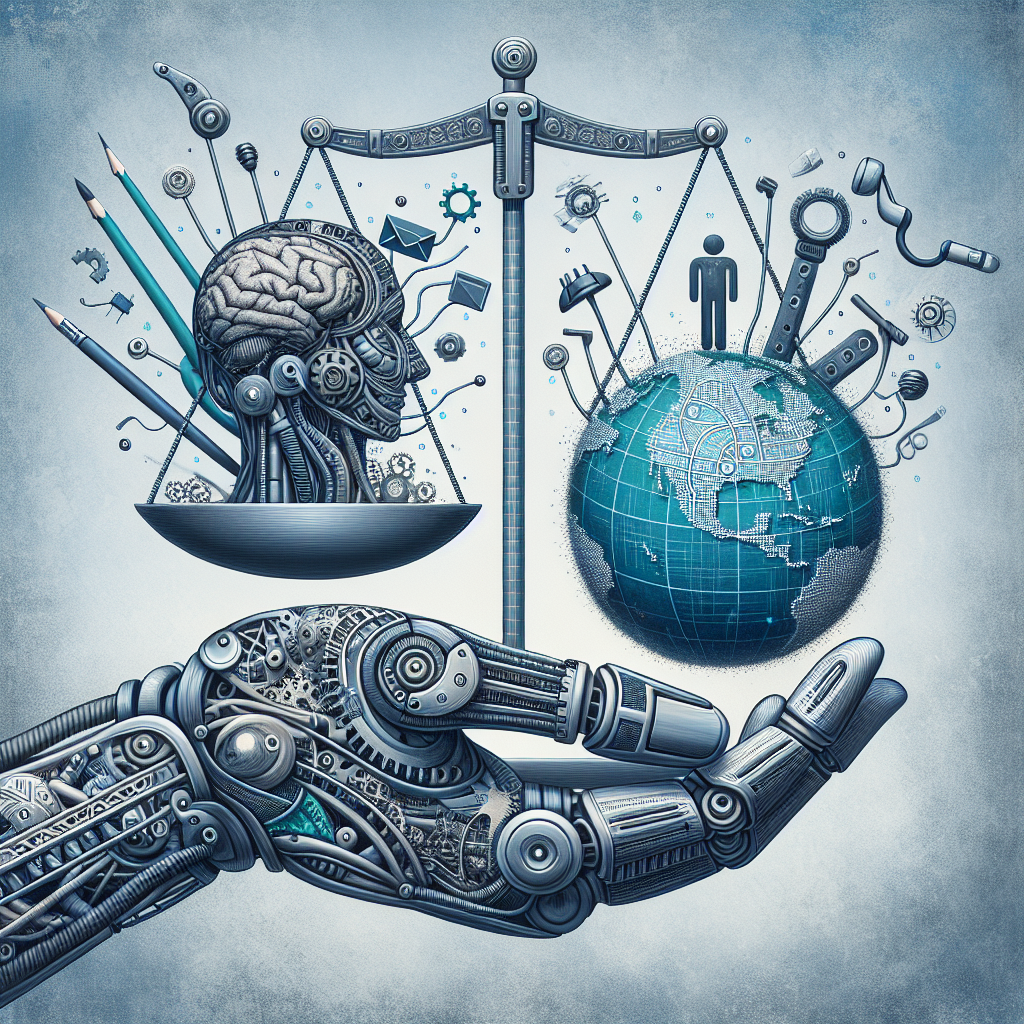In recent years, the integration of artificial intelligence (AI) into the workplace has become increasingly prevalent. From automating repetitive tasks to enhancing decision-making processes, AI has the potential to revolutionize the way we work. However, as AI continues to reshape the employment landscape, ethical concerns regarding its impact on labor practices have also come to the forefront.
The use of AI in employment and labor practices raises a host of ethical questions, including issues related to fairness, transparency, accountability, and the potential for bias. As AI systems become more sophisticated and widespread, it is essential for organizations to consider the ethical implications of their use and develop policies that ensure the fair and responsible deployment of AI technologies in the workplace.
One of the key ethical issues surrounding AI in employment is the potential for bias in decision-making processes. AI systems are only as good as the data they are trained on, and if that data is biased or incomplete, it can lead to discriminatory outcomes. For example, if a company uses AI to screen job applicants, it may inadvertently discriminate against certain groups based on factors such as race, gender, or socioeconomic status. This can perpetuate existing inequalities in the workforce and limit opportunities for underrepresented groups.
To address this issue, organizations must work to ensure that their AI systems are trained on diverse and representative data sets and regularly monitor and evaluate their performance to identify and mitigate any biases that may arise. Transparency is also crucial in ensuring that employees understand how AI systems are being used in the workplace and have the opportunity to challenge decisions that they believe to be unfair or discriminatory.
Another ethical concern related to AI in employment is the potential for job displacement. As AI technologies become more advanced, there is a growing fear that they will replace human workers in a wide range of industries, leading to widespread unemployment and economic instability. While it is true that AI has the potential to automate certain tasks and roles, it is also important to recognize that AI can create new opportunities for innovation and growth.
Organizations must take a proactive approach to managing the impact of AI on their workforce, including retraining employees for new roles, investing in skills development programs, and ensuring that the benefits of AI are shared equitably among all workers. It is also important for policymakers to consider the social and economic implications of AI adoption and develop regulations that protect workers’ rights and promote fair labor practices.
In addition to fairness and job displacement, AI in employment raises ethical concerns related to privacy and surveillance. As AI systems collect and analyze vast amounts of data on employees, there is a risk that sensitive information could be misused or exploited. Employers must strike a balance between using AI to improve productivity and efficiency and respecting employees’ right to privacy and autonomy.
To address these concerns, organizations should establish clear policies on data collection and usage, obtain informed consent from employees before implementing AI systems that may impact their privacy, and regularly assess the ethical implications of their AI initiatives. Employees should also be educated about their rights and have the opportunity to voice any concerns they may have about the use of AI in the workplace.
Overall, the ethical considerations surrounding AI in employment and labor practices are complex and multifaceted. As AI technologies continue to advance and become more integrated into the workplace, it is essential for organizations to prioritize ethical considerations and ensure that their use of AI is aligned with principles of fairness, transparency, accountability, and respect for human rights.
FAQs
Q: What are some examples of AI technologies being used in employment?
A: Some examples of AI technologies being used in employment include automated recruitment systems, predictive analytics for workforce planning, chatbots for employee engagement, and AI-powered performance management tools.
Q: How can organizations ensure that their use of AI in employment is ethical?
A: Organizations can ensure that their use of AI in employment is ethical by developing clear policies and guidelines for the deployment of AI technologies, training employees on the ethical implications of AI, regularly monitoring and evaluating the performance of AI systems, and establishing mechanisms for addressing ethical concerns that may arise.
Q: What are some potential benefits of AI in employment?
A: Some potential benefits of AI in employment include increased efficiency and productivity, improved decision-making processes, enhanced employee engagement and satisfaction, and the creation of new job opportunities in emerging fields such as data science and AI development.
Q: How can employees protect their rights in the face of increasing AI adoption in the workplace?
A: Employees can protect their rights in the face of increasing AI adoption in the workplace by educating themselves about AI technologies and their implications, advocating for transparent and accountable AI practices within their organizations, and seeking support from labor unions and advocacy groups to ensure that their rights are respected.
Q: What role do policymakers play in addressing ethical concerns related to AI in employment?
A: Policymakers play a crucial role in addressing ethical concerns related to AI in employment by developing regulations and guidelines that protect workers’ rights, promote fair labor practices, and ensure that AI technologies are used in a responsible and accountable manner.

